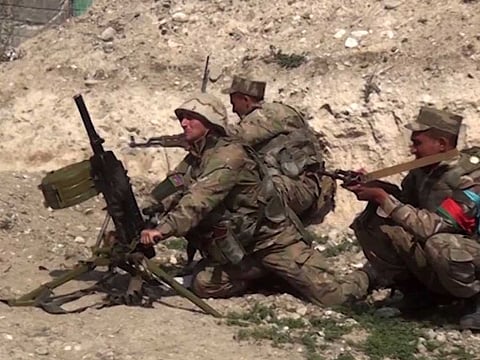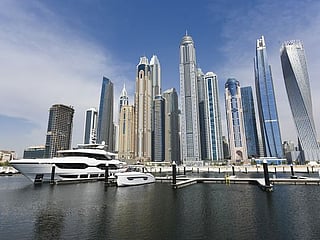War in Nagorno-Karabakh has a deeper meaning
It is essentially about who gets to control supply lines cutting through region

Also In This Package
Wars and cold conflicts usually conceal their true motives. Motives that could often include competing for natural resources and their supply lines - as is the case in the current conflict between Azerbaijan and neighbouring Armenia over the Nagorno-Karabakh region.
This area was once part of the Soviet Union before its collapse, but then the neighbours began to engage in a struggle for control of Nagorno-Karabakh driven by national, strategic and economic reasons.
The region itself does not enjoy natural resources of any great import, but its prominence lies in a strategic location and as a potential meeting point for oil and gas supplies from central Asia, which is rich in hydrocarbon wealth. There is also the possibility of building supply lines through it to export to the European market.
Three of the Caucasus countries - Turkmenistan, Azerbaijan and Kazakhstan - enjoy enormous oil and gas wealth. Turkmenistan ranks fourth in the world in terms of gas reserves with 17.5 trillion cubic meters, while Azerbaijan and Kazakhstan, in addition to gas, have large reserves of oil.
In-built vulnerability
Excluding the Caspian Sea, which is a landlocked lake, the main problem for these three countries is that they are non-coastal, which creates a complex logistical dilemma that impedes exports. Such operations are fraught with risks, extortion and the possibility of suspension at any time due to non-economic reasons.
At present, there are two lines, one for transporting oil and the other for transporting gas, as Azerbaijan was forced to build them far from Nagorno-Karabakh and Armenia. The two lines pass double the distance north to Georgia and then to Turkey, which is one of the main consumers of oil and gas exported from Azerbaijan.
However, there are two key problems in this respect. The first is that the capacity of these two pipelines is limited, while demand for oil and gas is growing not only in Turkey, but Europe as well.
Geographical disadvantage
Second, Turkmenistan, which is rich in natural gas, is unable to make the most of it because of being in a confined geographical area. It has only three options for exporting to foreign markets - through Afghanistan and Pakistan, and then transporting it by gas tankers from Pakistani ports. But the unstable situation in Afghanistan stands as a barrier.
The other option is through Iran and its ports on the Arabian Sea, but the mullah regime cannot be trusted, as it could exploit this wealth to achieve chauvinist ideological and sectarian ends. However, the third option seems to be the most effective, i.e., building pipelines under the Caspian Sea towards Azerbaijan and then either northwards towards Georgia and then Europe, which would be very costly. Or south towards Nagorno-Karabakh in the direction of the Armenian ‘Corridor’, which separates Turkey from Azerbaijan, and from there to Turkey and Europe.
Interestingly, this route can later be of great economic benefit to Armenia. It would be a shortened and economically feasible supply route for all parties, as it will supply global markets with large quantities of Turkmenistan gas.
This is precisely the essence of the ongoing conflict between Armenia and Azerbaijan. Whoever controls this region can control the large oil and gas supplies coming from three producing countries in the Caucasus.
Consequently, the current war does not concern Baku and Yerevan alone, but rather there are regional and global parties who smell oil and gas from afar and want to have a word in determining the future of their transportation to achieve their energy security and control supplies to other countries.
This means the world will witness a decisive war that will attract more players and create new complications and destruction long before things settle down in favour of the stronger party. Or through reaching some sort of understanding...
- Mohammed Al Asoomi is a specialist in energy and Gulf economic affairs.









